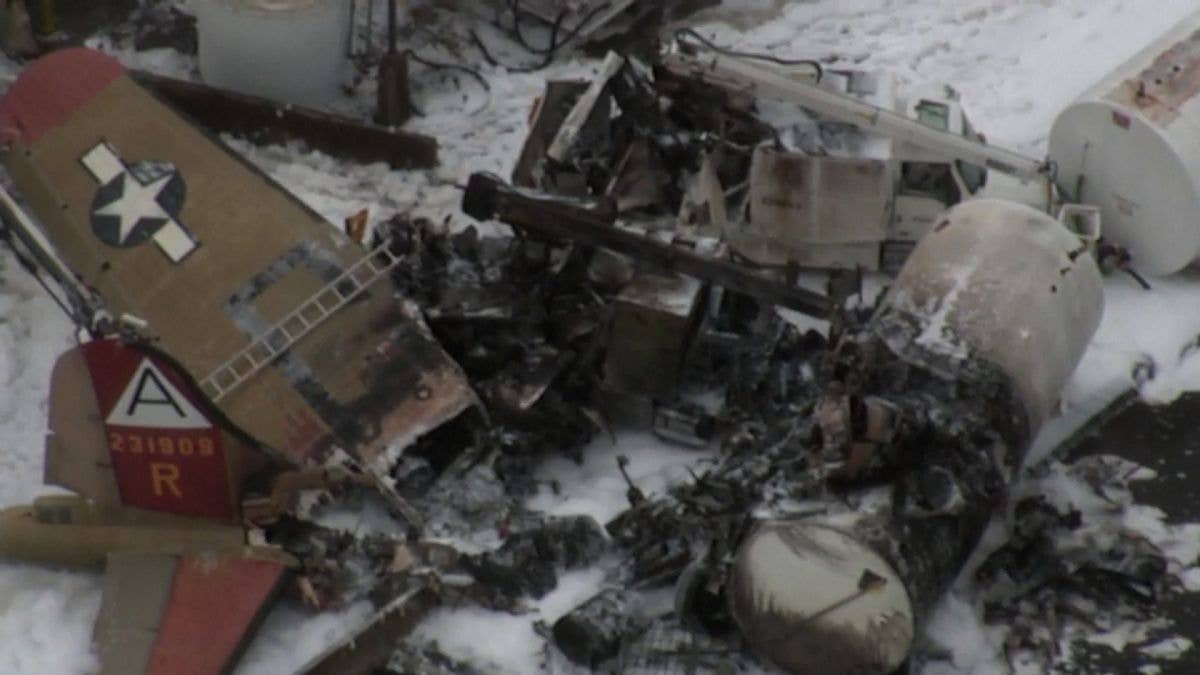FAA Rejects Collings Foundation Request To Carry Passengers
Citing lapses in training, maintenance and the lack of a safety culture, the FAA has rejected the Collings Foundation’s permission to carry passengers on revenue flights in its 10 vintage…

Citing lapses in training, maintenance and the lack of a safety culture, the FAA has rejected the Collings Foundation’s permission to carry passengers on revenue flights in its 10 vintage aircraft. The decision was prompted by the FAA’s investigation into the crash of the foundation’s B-17G Nine-O-Nine at Windsor Locks, Connecticut, on Oct. 2, 2019, that destroyed the aircraft and killed five passengers and two crew members. Six occupants survived, some with serious injuries.
Collings offered revenue rides in the B-17G under the FAA’s Living History Flight Exemptions program, which operators can renew every two years. Collings had applied for the renewal, but the FAA declined to approve it because it said the foundation failed to follow agreed-upon training and maintenance requirements. In the rescission of the exemption, the FAA said, “Based on a review of the relevant records and other evidence, the FAA has determined Collings was not fulfilling several requirements of the exemption.”
Specifically, the FAA found that Collings failed to train the aircraft crew chief, as specified in its operating guidelines. “In an interview with the FAA on March 2, 2020, the crew chief verified that he received no initial training and was unaware of basic information concerning operations under the exemption. Instead, he only received on-the-job training. This lack of training indicates Collings failed to fulfill the terms of condition and limitation Nos. 4 and 7,” the FAA’s document said. The two limitations require specific training and documentation. Further, the crew chief told the FAA he was unaware that a safety and risk management program existed at all for the foundation. “This absence of awareness and lack of training establishes that Collings failed to maintain and apply on a continuous basis a safety and risk management program that met or exceeded the criteria specified in the FAA Policy,” the rescission document said.
Although the NTSB continues to investigate the crash and has not determined a final cause, the FAA’s initial findings found significant maintenance issues with two of the engines. “Inspection of the engines on the B-17G … established magneto and ignition failures existed. Regarding engine 4, to prevent the magneto P-leads from separating from the magnetos, someone had attempted to rig the magneto leads in place with safety wire. Inspection and testing of engine 4 left magneto revealed the movement of the safety-wired lead caused grounding to the case, which rendered the magneto lead inoperative. In addition, the right magneto of engine 4 was found unserviceable. The cam follower was worn beyond limits and the point gap was less than half the measurement required by service documents. When tested, the magneto produced weak or no spark to four of the nine cylinders. All spark plugs were inspected and required cleaning and all electrode gaps were out of tolerance,” the FAA document said.
The initial investigation revealed that the number 3 engine also had fouled spark plugs, with gaps out of tolerance. Signs of detonation were found in both engines. “As a result of these findings and other information, the FAA questions whether the engines were inspected adequately and in accordance with the applicable maintenance requirements,” the FAA said. “Moreover, the records memorializing the inspections and maintenance performed on the B-17G lack key information and, in some cases, indicate maintenance was either not performed at all or was performed in a manner contrary to the applicable requirements,” the document said.
Since the crash, Collings has continued to tour with its aircraft, although it voluntary paused revenue flights. In an FAA docket documenting the request for a renewal of the LHFE exemption, public comments were overwhelmingly in favor of granting it. “In consideration of the foregoing, I find that a grant of exemption is not in the public interest because it would adversely affect the safety of Collings Foundation’s U.S.-registered aircraft, the FAA-certificated airmen that would be participating in the operations, the passengers on board the aircraft, and others involved in or affected by the operations,” said the rescission document, signed by Robert C. Carty, deputy executive director for the FAA’s Flight Standards Service.
AVweb has contacted Collings for a response and will update this report as soon as it’s available.






